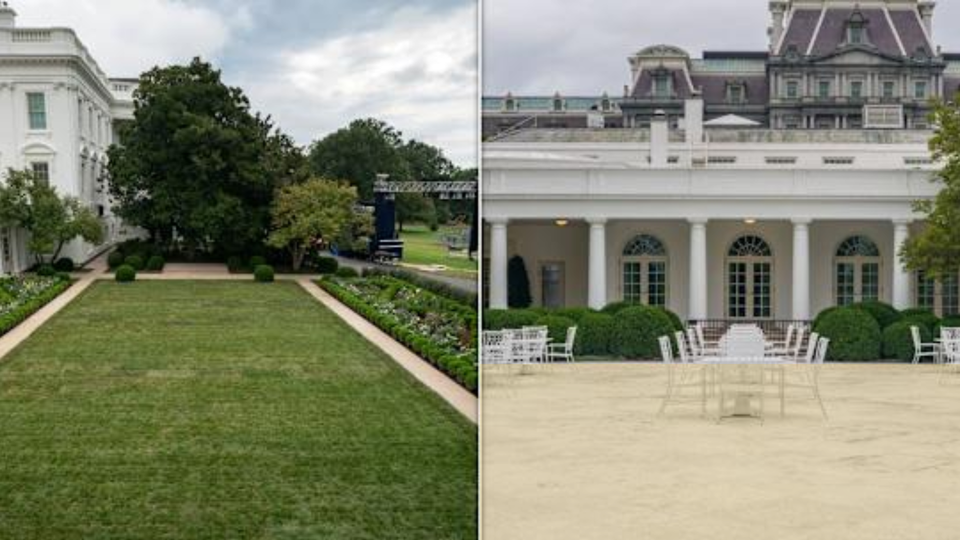A Bright and Terrible Orange


The rose garden was paved.
The rose garden was paved,
became a bright and terrible orange.
The orange was the end of softness,
brightness without warmth.
It was brightness that took
and distracted.
The floor was leveled.
Now the chairs align.
They align and realign,
from meeting to meeting,
from statement to statement.
Their business is sitting,
not seeing.
They did not dwell on the orange.
The rosebeds noticed. Dirt noticed.
The roses, or what was left of them, noticed.
The not-quite roses,
the used-to-be roses,
the still-here-but-smaller roses asked.
What is happening?
They asked the hedges,
asked the air.
They asked the columns and the boxed bushes
and the careful gravel.
They asked each other in rustles, in silence,
in the slow green patience of being alive.
They asked the drains,
patterned like flags,
stars and stripes underfoot,
into which runoff poured from the pavement.
It said: I am what is here.
It said: I am not concerned with your petals.
It said: I was installed.
And the plants that were not paved said
When?
When is it over?
When will it be undone, or returned, or reversed?
When will the bees come back and know what to do?
When will the shadows fall soft again, and not sharp?
When will the garden be a garden again?
They asked and asked.
They asked like roots ask water.
They asked like seeds ask time.
They asked and asked and the orange did not say no,
the orange did not say yes,
the orange said countless things and stayed
bright and terrible.
